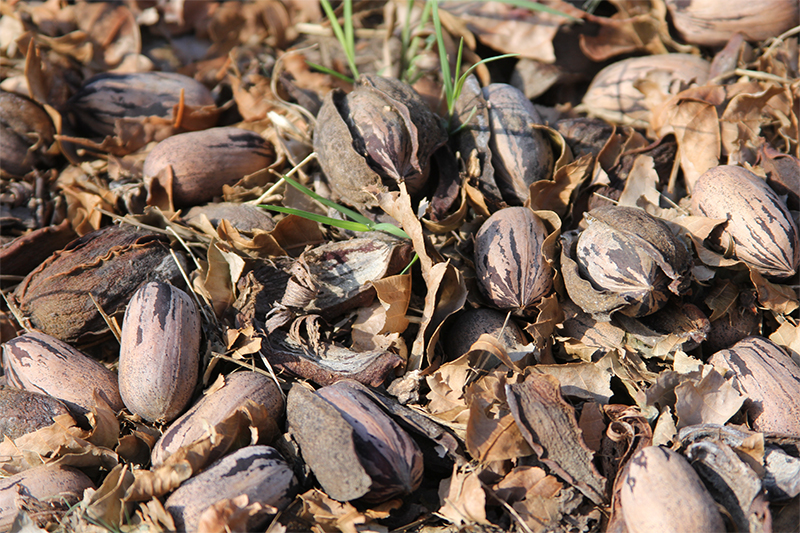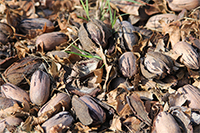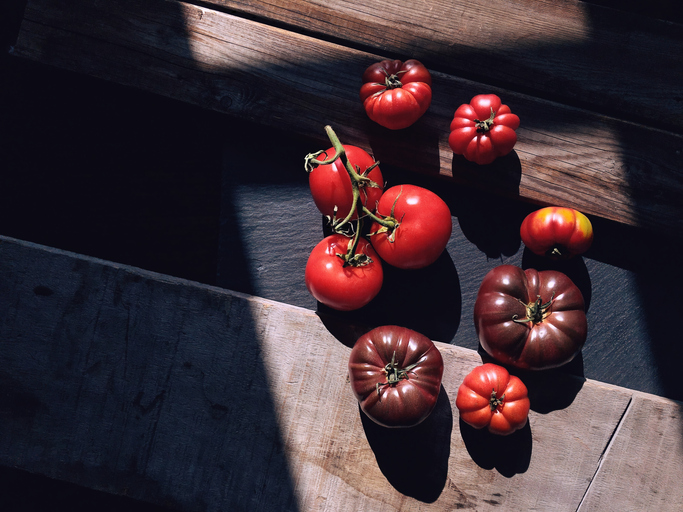Georgia’s pecan growers will have a limited supply this year due to weather conditions that affected the quality of the pecans and Hurricane Michael’s impact, according to University of Georgia Cooperative Extension pecan specialist Lenny Wells.
A heavy crop load combined with a September drought led some pecan kernels to be poorly filled or rotten in certain areas of the state. Between the late-season drought, the hurricane, and the wet harvest conditions, Wells believes that Georgia pecan growers will produce less than 50 million pounds this year. He estimated last year’s yields to be between 90 million and 100 million pounds.
“The poor quality of these pecans was something we were noticing before Hurricane Michael hit. Unfortunately, the weather has been a huge factor in how our pecans turned out this year. There was excessive heat in September at a time when water is needed to fill out the kernels, then you had the hurricane, and now, we’ve had two straight weeks of rainfall,” Wells said. “It’s definitely been a dreary harvest season.”
Wells believes that when the weather turned dry in September, pecan tree root systems no longer received the water they had grown accustomed to following a rainy summer. The moisture was essential since many of the trees Wells was monitoring were bearing a heavy crop this year. The impacted trees became stressed and couldn’t finish out the nuts. These conditions also increased disease pressure.
“Although we have isolated a fungal pathogen, Phomopsis, from these nuts, the trees were already susceptible to the fungus by the stress generated from the combination of crop load and late season drought and heat,” Wells said.
Short of thinning their crop in July and August, there wasn’t anything growers could do about the problem, he said. This disease problem was mainly concentrated in east Georgia and in orchards that have sandier soils. Shucks began turning black, and in some instances, the nuts fell from the trees.
Pecan producers in southwest Georgia are still picking up the pieces after Hurricane Michael. There’s so much debris in the orchards, Wells believes many growers will file insurance claims and use the normal harvest time to clean up.
“Some orchards were hit really hard. There’s so much debris in the way that there’s no way to clean it up without running over and destroying a lot of the nuts. They won’t be able to get harvest equipment through there and pick the nuts up like they should,” Wells said. “The cleanup and maintenance on these orchards will probably last into spring of next year. It’s going to take a while to get all this back to where it needs to be.”
UGA Extension estimates Georgia pecans suffered $100 million in direct losses to this year’s crop, $260 million in direct losses to trees and $200 million in direct losses to future income. For more information about emergency resources offered by Extension, see extension.uga.edu/topic-areas/timely-topics/emergencies.html.








